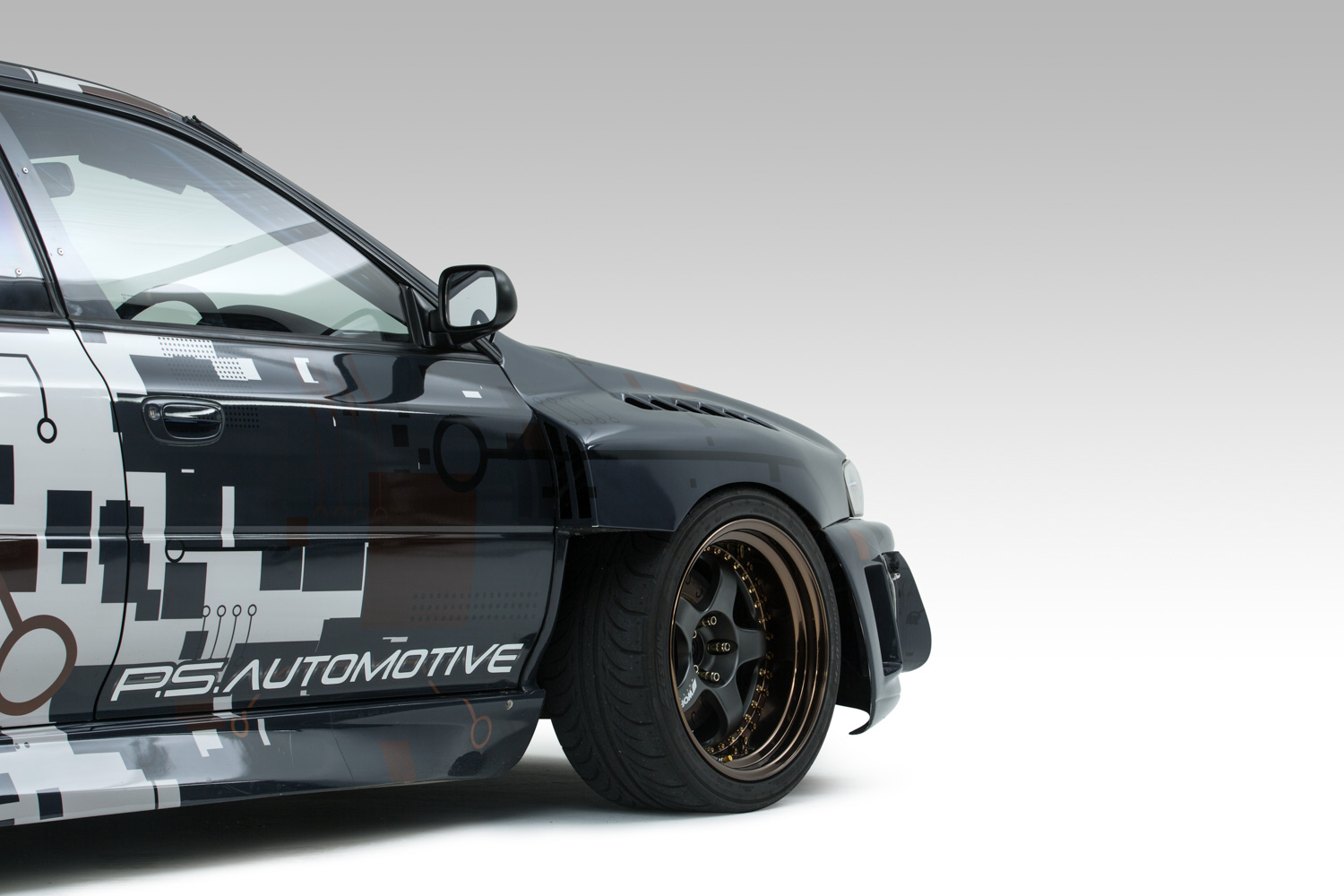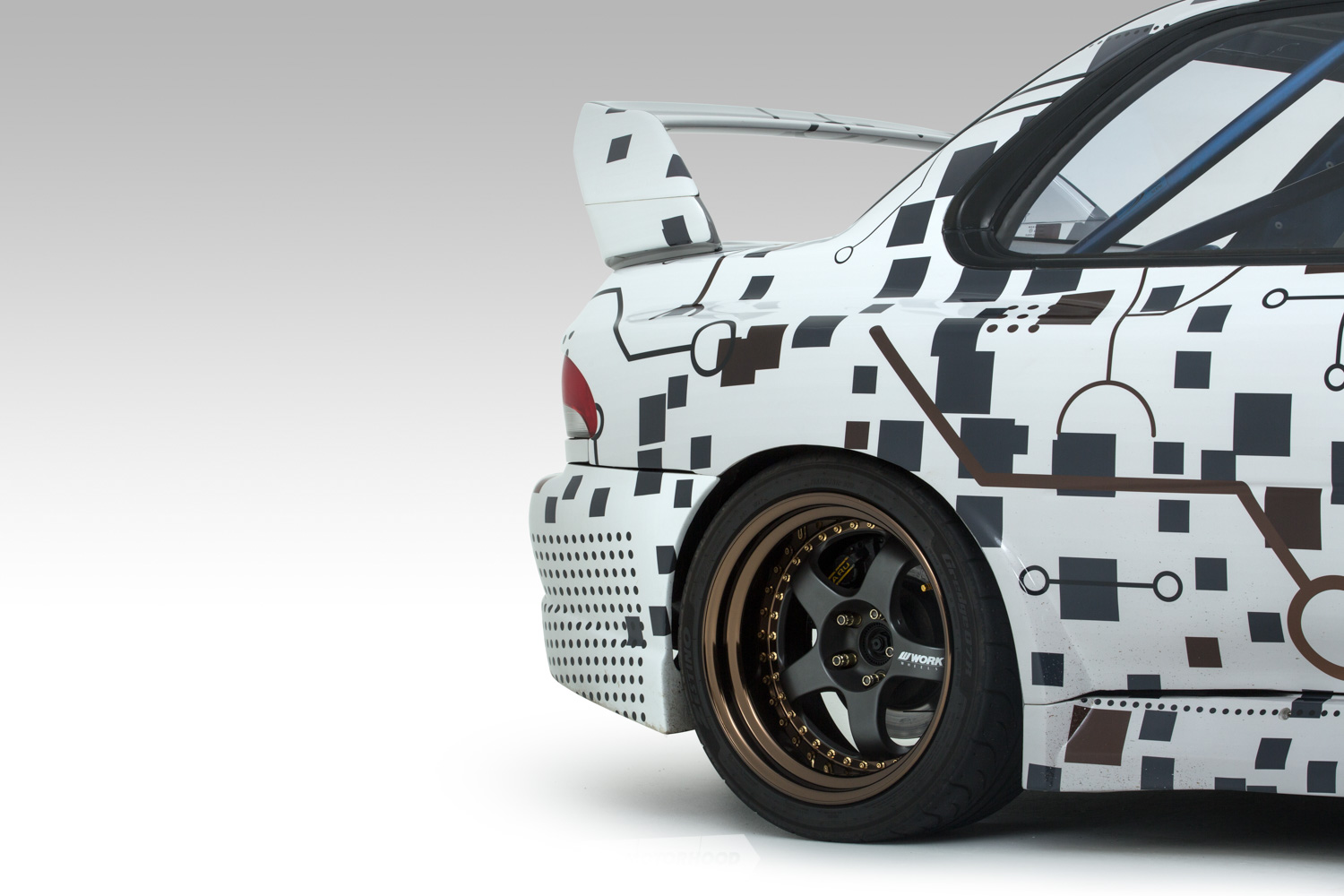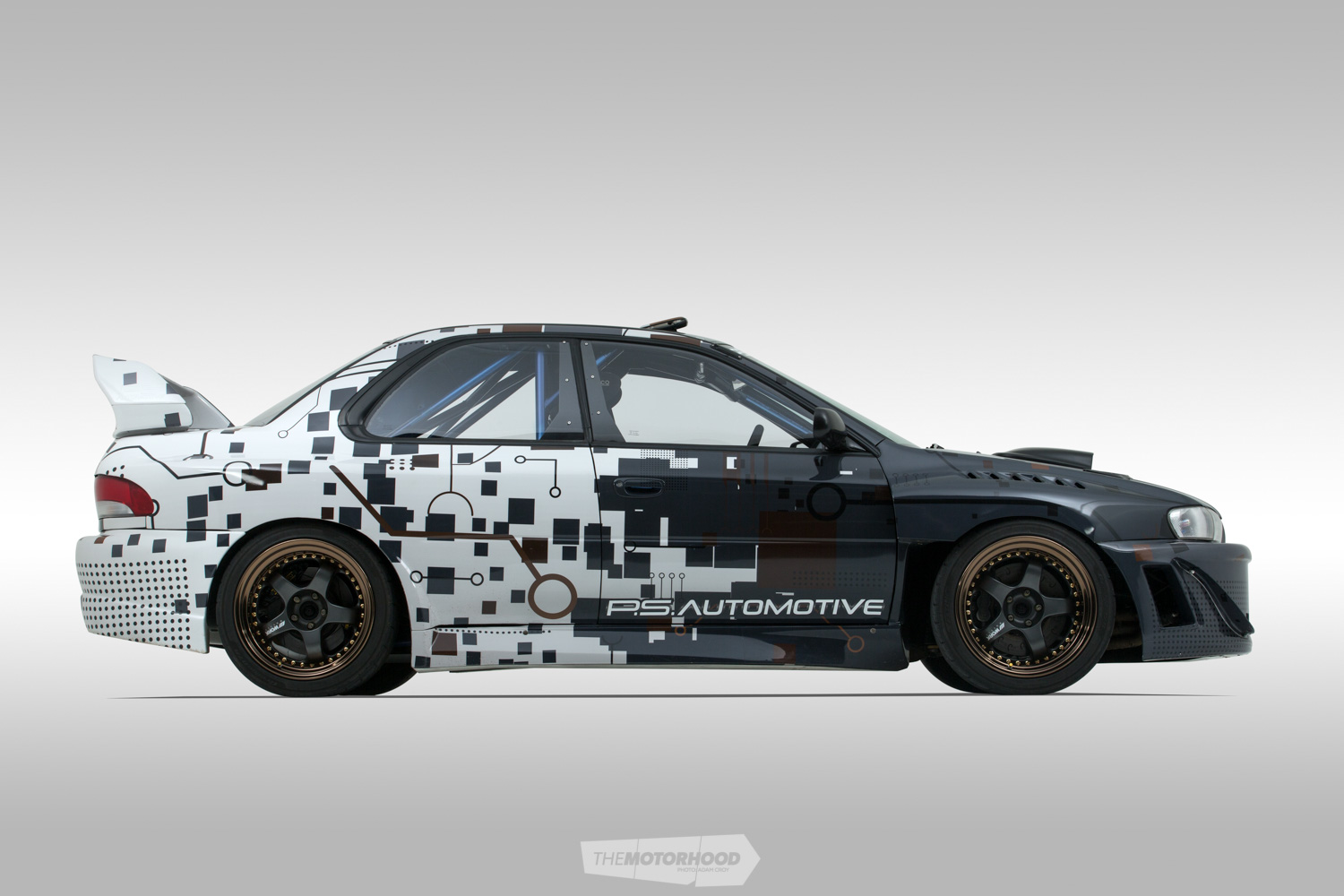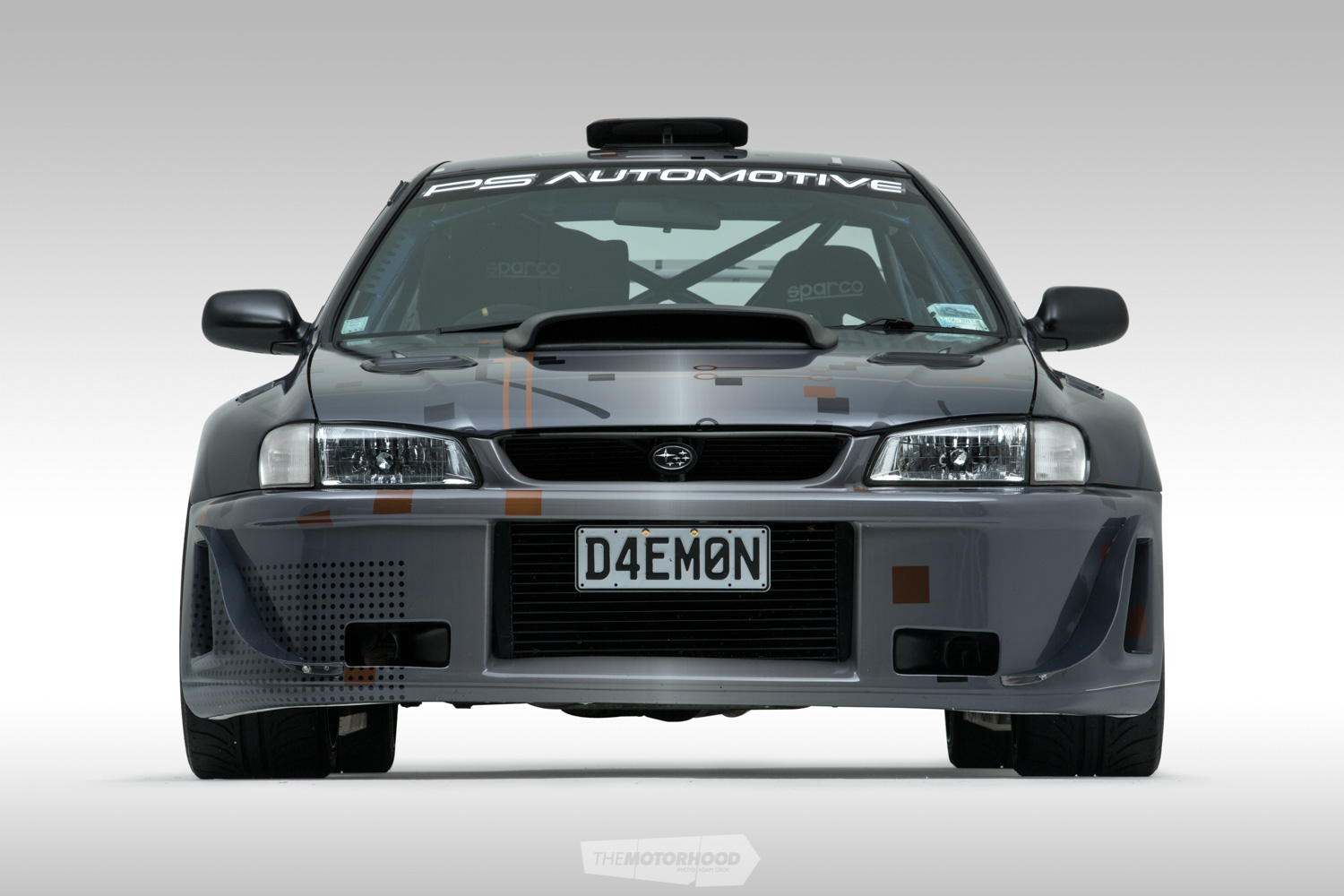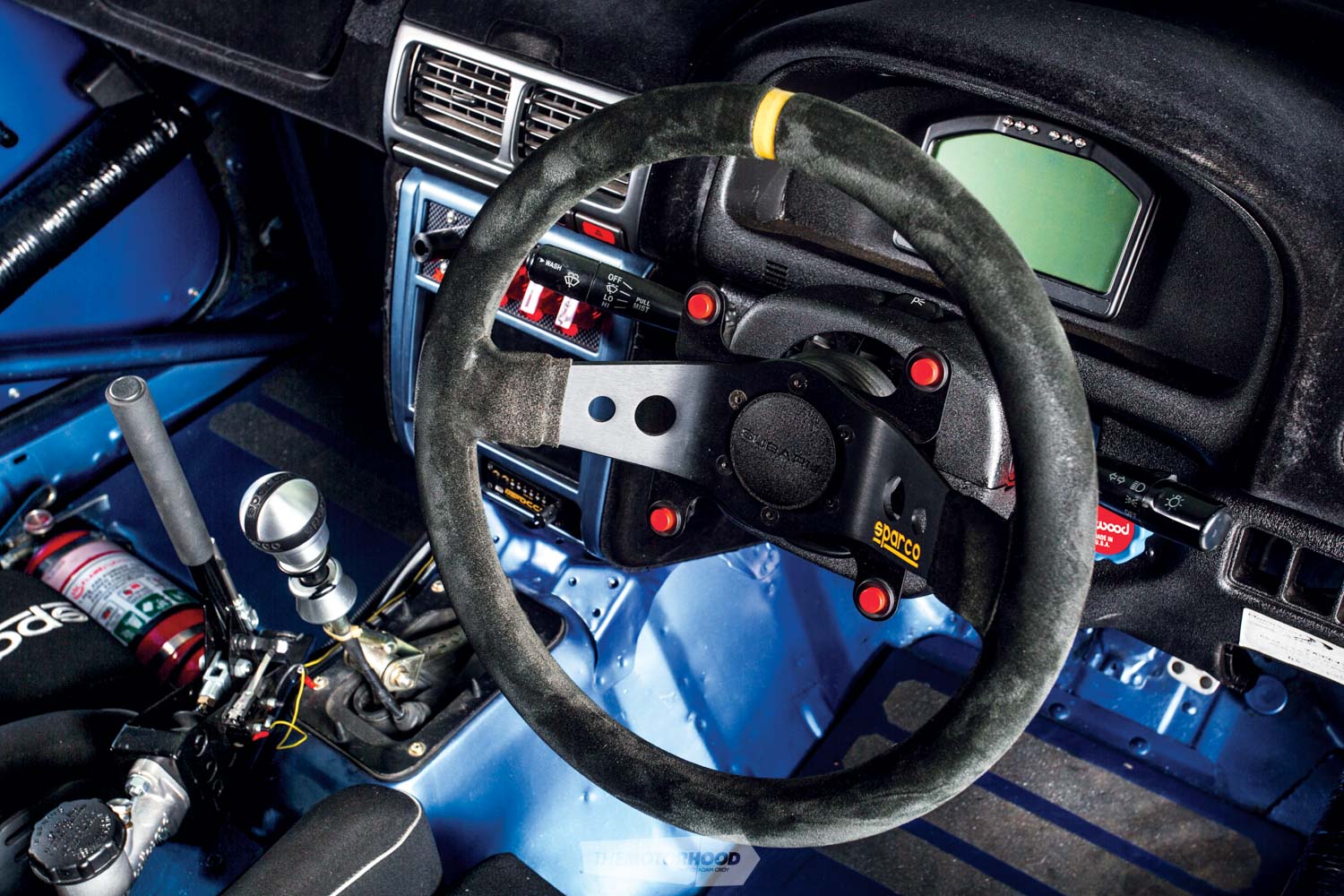You can follow the crowd or ignore the purists and build a wide-bodied WRX STi Type RA limited with a worked EJ20 pumping out 361kW and makes one hell of an aesthetic statement — we know which option we’d choose …
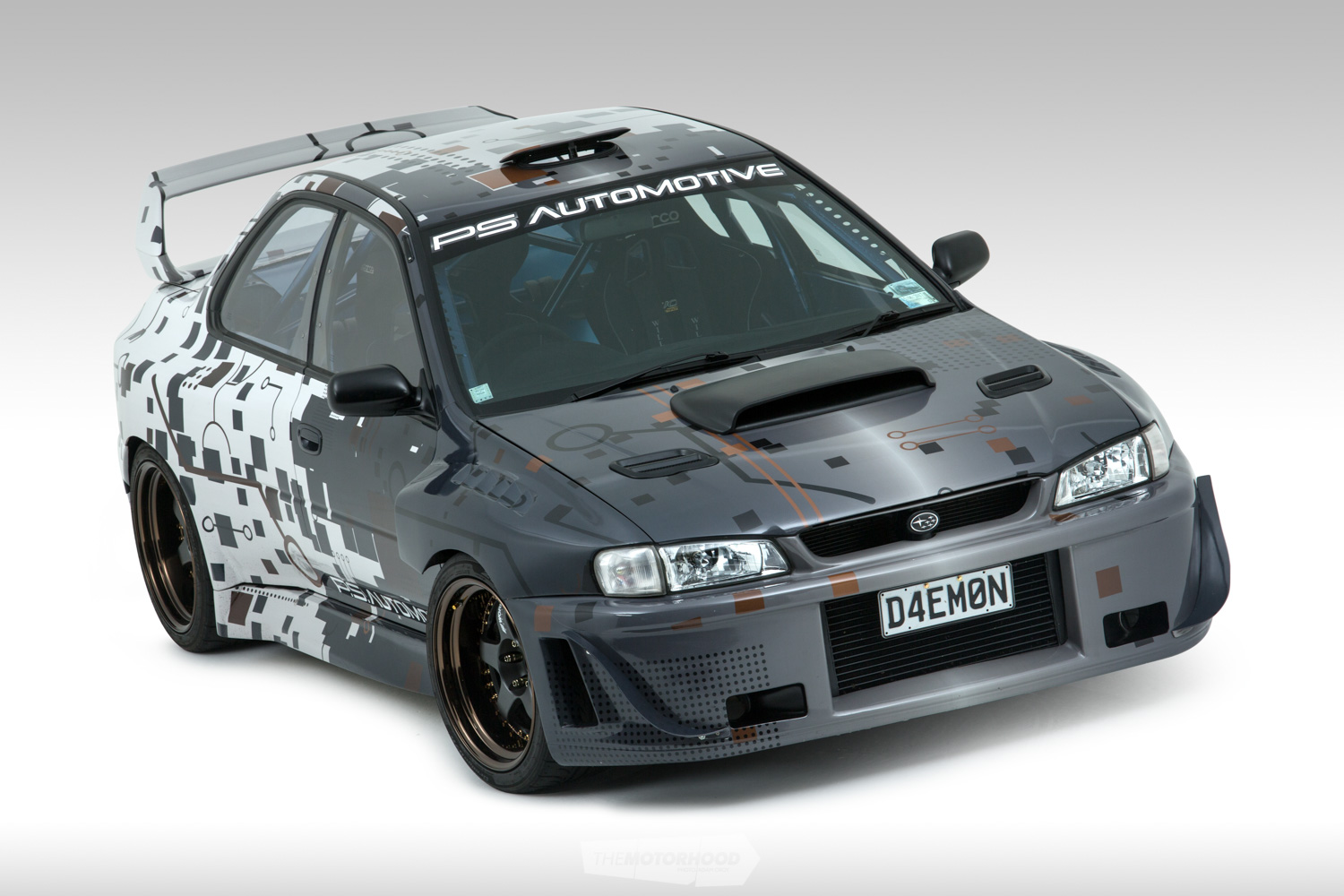
Building a car is a very personal process — tastes vary, and wanting to create a style that represents ‘you’ as a person is a huge part of that. Every decision, right down to the small touches, shapes the way people will perceive the final product and the person behind the wheel. All too often, though, you can find yourself altering the original build concept to suit a specific way things are ‘supposed’ to be done and ensure the purists aren’t riled up. But when you boot any such thoughts out the back door and run wild, next-level awesome can be achieved.
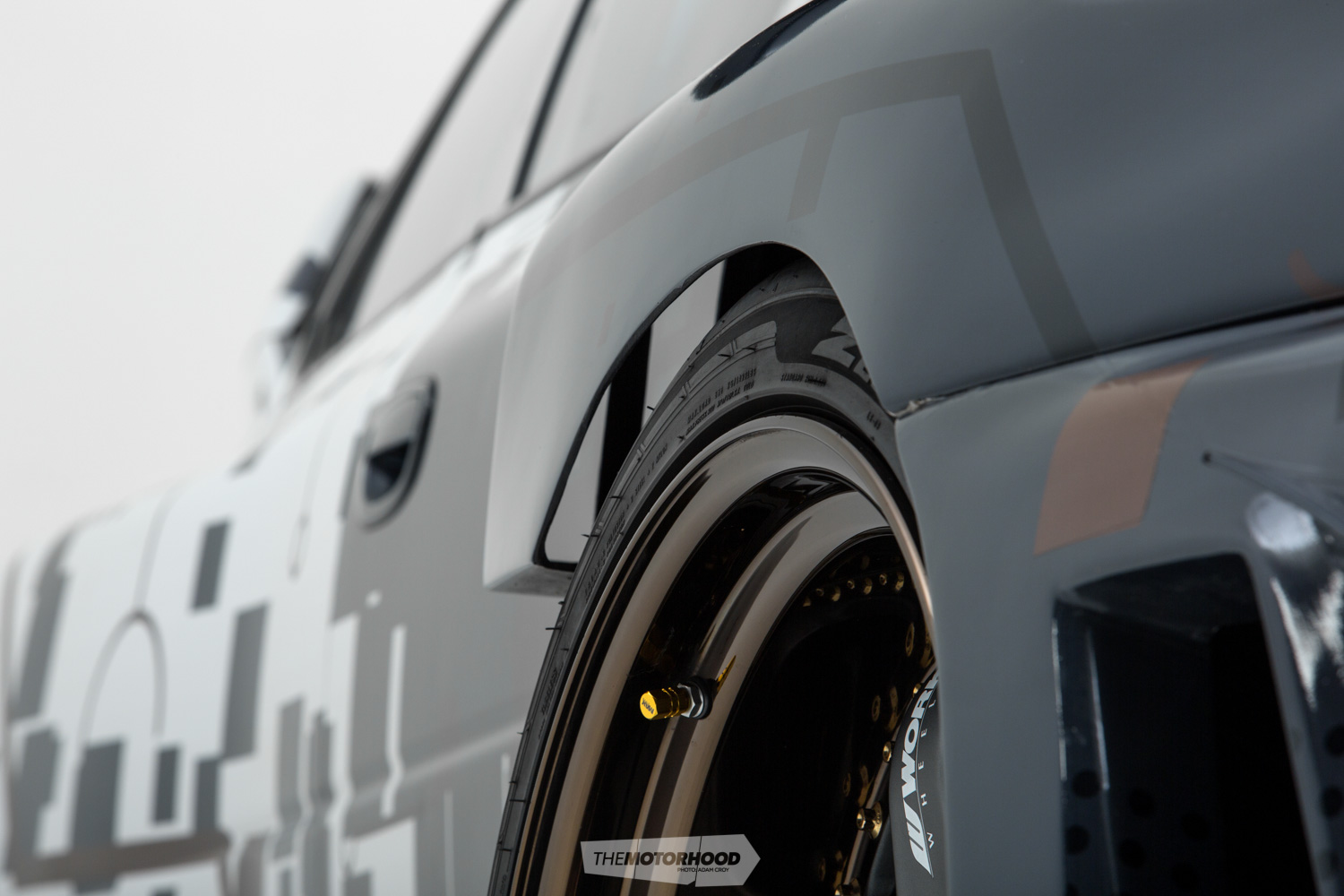
This was, without a doubt, Russell Clarke’s approach — even if he had never dreamed of owning the WRX in the first place. When he migrated from the UK in 2008, Russell’s weapon of choice was a naturally aspirated SW20 MR2, and he had full intentions to continue that focus here, so he began hunting for a clean turbo version, to no avail. While unlucky in that search, he did turn up a bit of a rare gem in the back garage of a local car dealer. “I had never really liked Subarus back home and wasn’t particularly interested in owning one at that point either, but the guy said, ‘I’ll take you for a ride’, and, straight away, I said to myself, holy shit, these things can actually move,” Russell explained.
The STI Type RA Limited, which is a stripped down version of the WRX, already sported a few engine mods and a close-ratio gearbox, but part of the purchase agreement was that it would be returned to factory form mechanically.
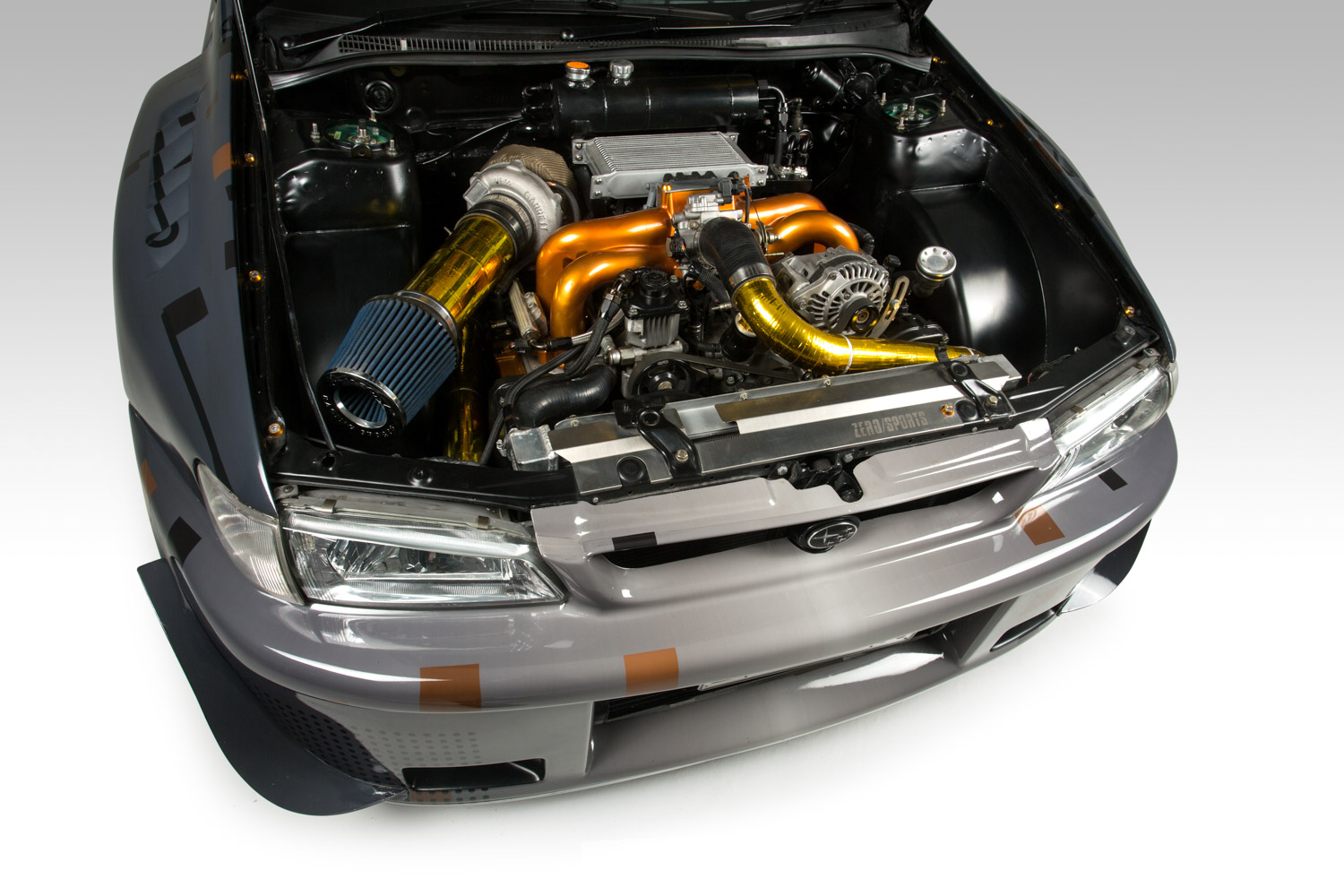
The build was based around a simple concept: for it to pull right through all the gears, whether it’s on the track, or on the street — not a huge number on the dyno sheet
After throwing it around Pukekohe Park Raceway a handful of times, Russell quickly decided that he would chase the power he’d tasted on the test drive. This was when he met and befriended a local Subaru specialist, Paul Millett from PS Automotive, who became an instrumental part of the build.
Paul knows Subarus like the back of his hand, having spent time as a Subaru-dealership technician. The pair planned a strong engine build that would deliver usable power throughout the rev range. They employed a 2.1-litre EJ207 block and bolted BH Legacy heads on either side — which Paul explained offer larger inlet and exhaust ports. The heads were further ported to suit one-millimetre-oversized valves — ensuring optimal air flow. Custom 279-degree camshafts were machined, and are spun through Brian Crower adjustable cam wheels. The intake plenum was also flipped, and shaved to suit the new heads.
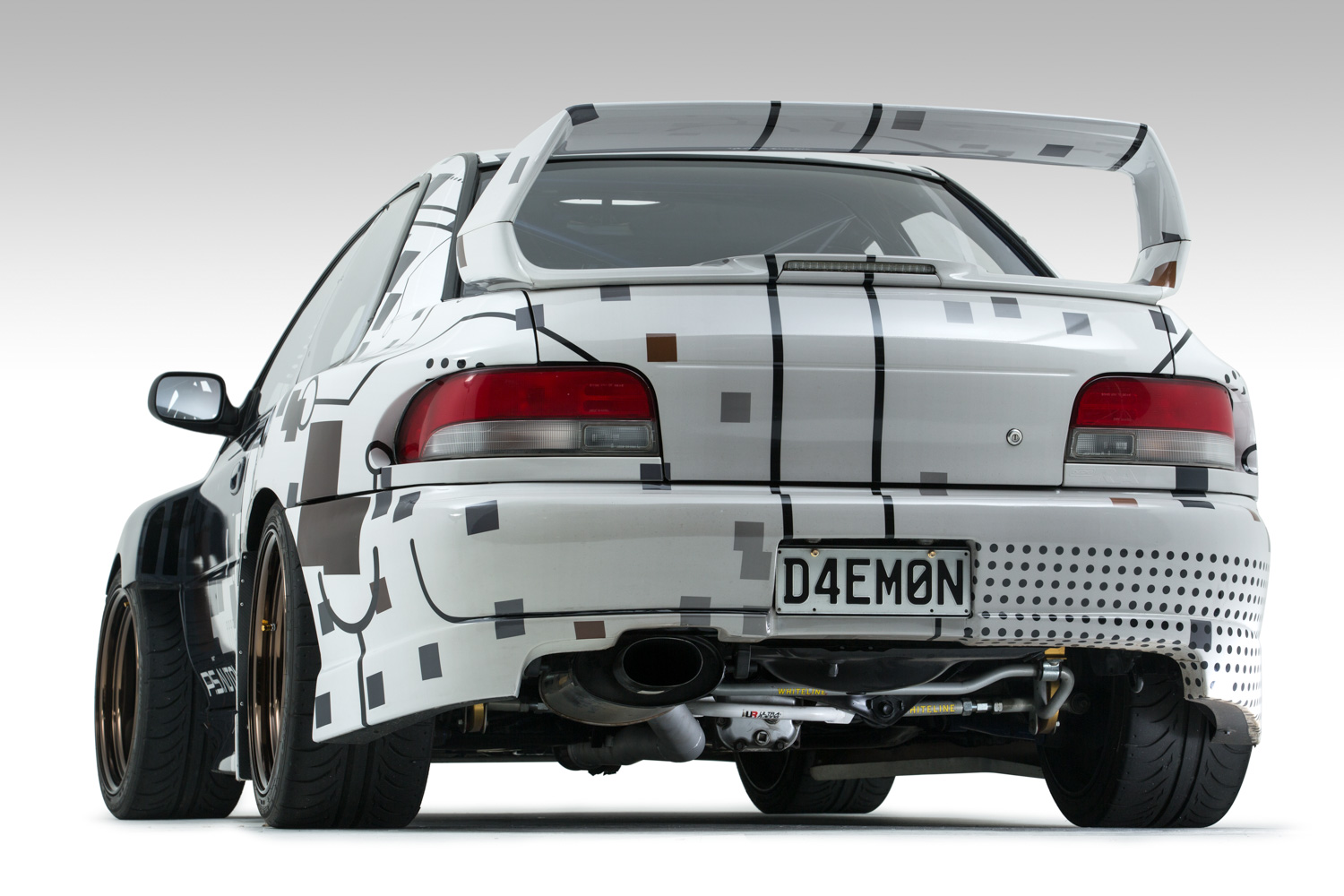
This build was heavily inspired by the greats of old — such as the Roger Clark Motorsport–built ‘Gobbstopper’ — so Russell pumped 110mm of wide into the body and sat it over a whopping 18×10-inch (-20p) set of Work Meisters
When more air is fed in, more fuel is required, so a set of Fiveomotorsport Black-Ops 1400cc top-feed fuel injectors was mounted into custom Miller Engineering fuel rails, with a Zeitronix flex-fuel sensor fitted to allow the sweet aroma of E85 to fill the car while maintaining streetability on 98 octane. Equally trick down back, the spare wheel well was altered to suit an ATL 12-gallon fuel cell with custom surge tank, drawn from by twin Walbro primary pumps.
Of course, with all the power-plant work going on, the driveline needed some attention, too.
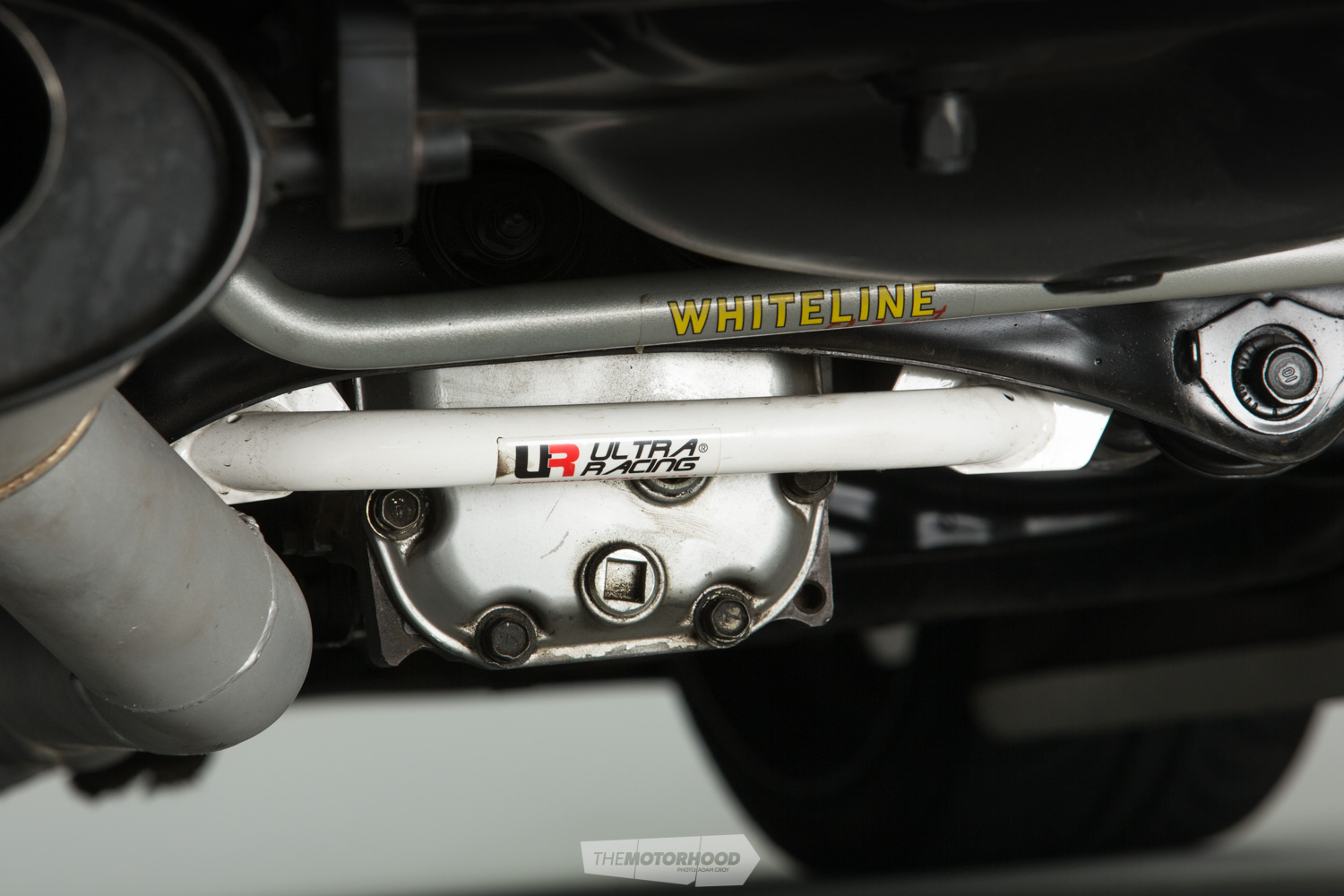
An ’06 Spec C six-speed was installed, using a Cusco twin-plate clutch and keeping the factory 3.9:1-ratio LSDs. As a new driveshaft was required for the fresh box, Russell told us that it was as good a time as any to upgrade it to a custom one-piece carbon-fibre unit. Tuned at Dtech, the complete package made an impressive 361kW and 590Nm at the wheels on 25psi of boost, running E85.
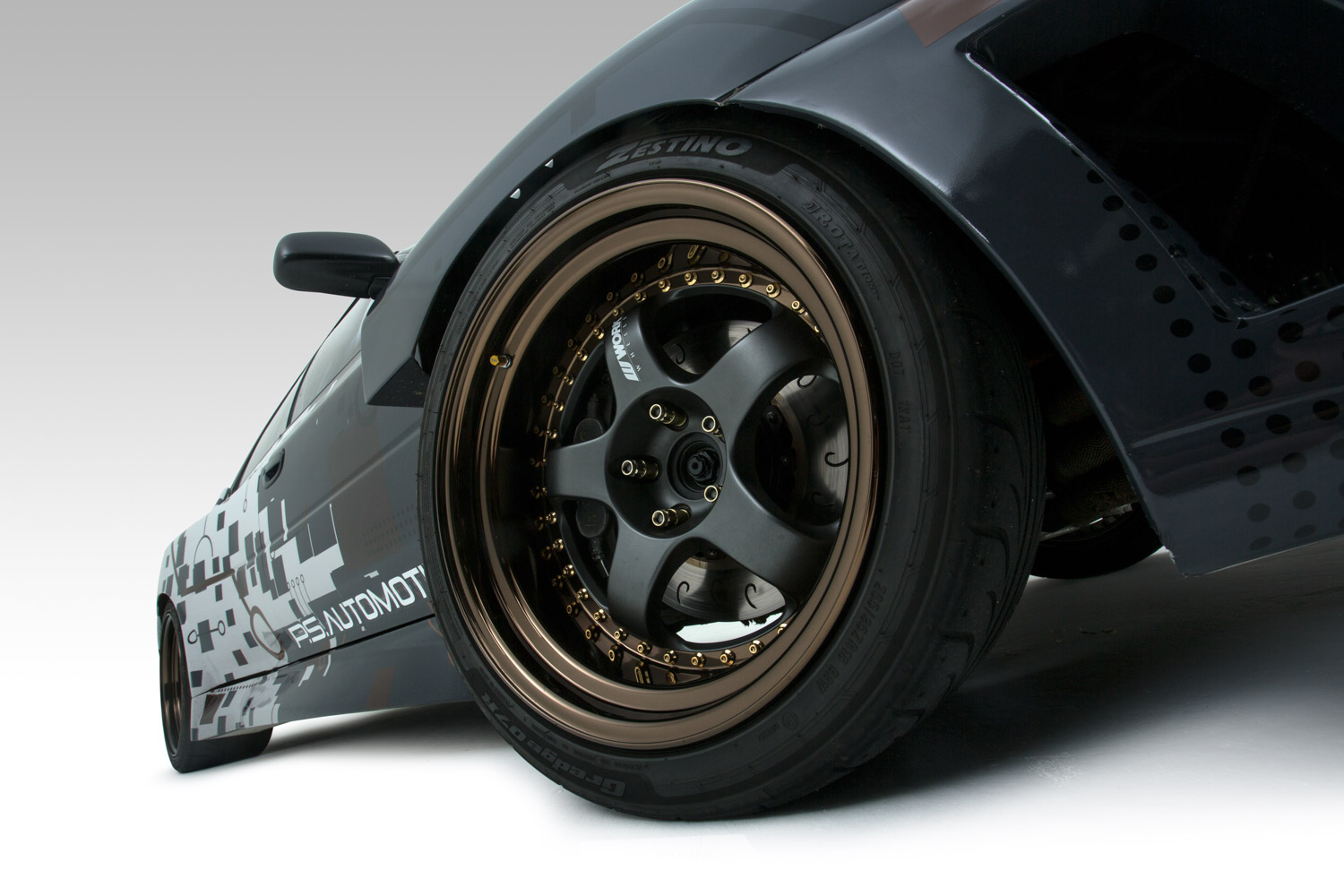
It no doubt blasted along the track something wicked and sounded all kinds of rad while doing it, but, for all intents and purposes, it still looked like your regular iconic-blue GC8, and Russell wasn’t digging the sleeper mode. However, that changed when he stumbled across what he said were his perfect wheels, and the car’s looks now revolve around them. There was an issue to resolve first, though, as the 18×10-inch (-20p) Work Meister S1 3P wheels pushed far, far beyond the factory body limits, and although available in the car’s native 5×100 PCD, the hub bearings were too small for its intended use. To counter this, Paul and Russell converted the hubs to V9 examples, which have larger bearings — it did required a fair amount of machine work to make fit, though. Now even more determined to force the car to work, they looked to the 22B for aesthetic inspiration — Subaru’s famous widebody 2.2-litre Impreza produced to commemorate both Subaru’s 40th anniversary and its third consecutive manufacturer’s title in the World Rally Championship (WRC).
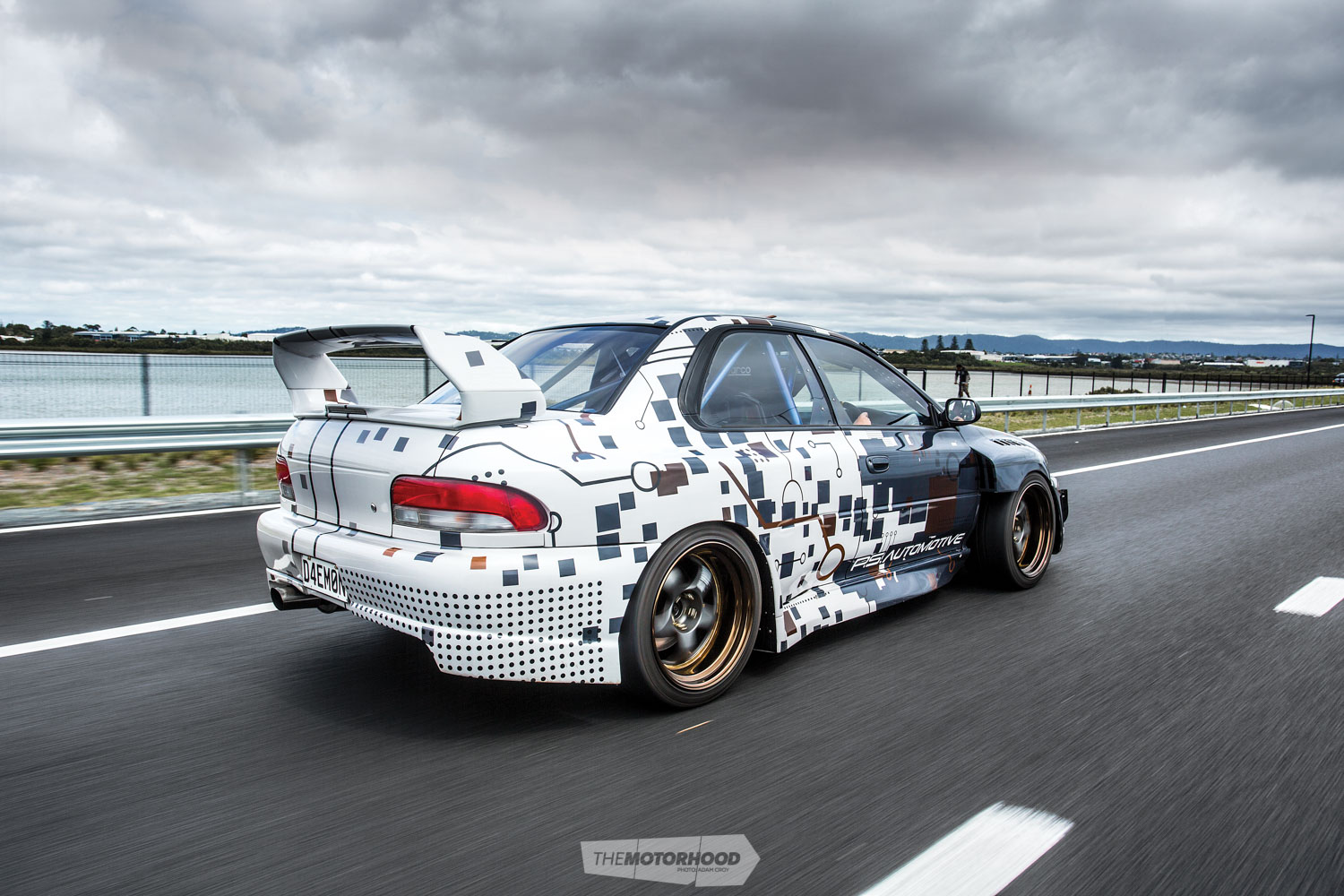
This was a four-door body, but there wasn’t much use planned for the ‘extra’ two doors, so Paul and Russell welded them shut to allow one-piece rear quarter panels to be made — which would eventually be 110mm wider than factory. Built from scratch at Mike Shaw Fibreglass, they originally took on a squarer DTM-style look, which didn’t quite suit the rounder shape of the GC8, so they were revised to the curvier versions you now see down back. The front guards are super-aggressive units out of the UK, modified to double the width, again to 110mm wider than standard, and given a fair amount of venting to help remove air from around the wheels — no doubt to keep those six-pot AP Racing front brakes cool, too. Although you may not be able to pick it at first, the side skirts are genuine V8 supercar units that have been modified to follow the new body lines. Russell told us, “I really wanted that front wrap-under cutaway style, and I’m glad we did, because it works so smoothly with the open end of the front guards.” The front bumper is yet another custom piece that has been chopped, channelled, and vented to provide optimal aero — you may notice the use of BNR32 bumper vents, too — and the rear was a cheap score that has been pumped out to match the width.
Overall, the kit is a one-off, and you’d have a hard time trying to replicate it, as the shape creates a complex series of body lines that are only further offset by the wild livery it now sports.
Speaking of that livery — it was inspired by one of the most unusual things that we’ve heard of to date: it was found on the shaft of a golf club while Russell chipped off the number-five green at his local golf course. He took the idea to Ash at Hero Prints, who based the colours around the wheels, taking bronze from the anodized lips and adding the white for a touch of contrast. While Russell’s rapt with the design, the application process wasn’t easy, and he was turned down by multiple wrap shops that didn’t want to deal with the complicated layering of the design. Paul suggested that Harrier Signs and Machine Signage, better known for their work on large machinery and Boeing 737s, might be able to print the entire design and apply it as a solid sheet — which they did, and the finished result, even around those finicky tight spaces, is spot on. “It was fortunate that they really knew what they were doing, otherwise it may not even be wrapped now, and it’s been such an essential piece of the build,” Russell said.
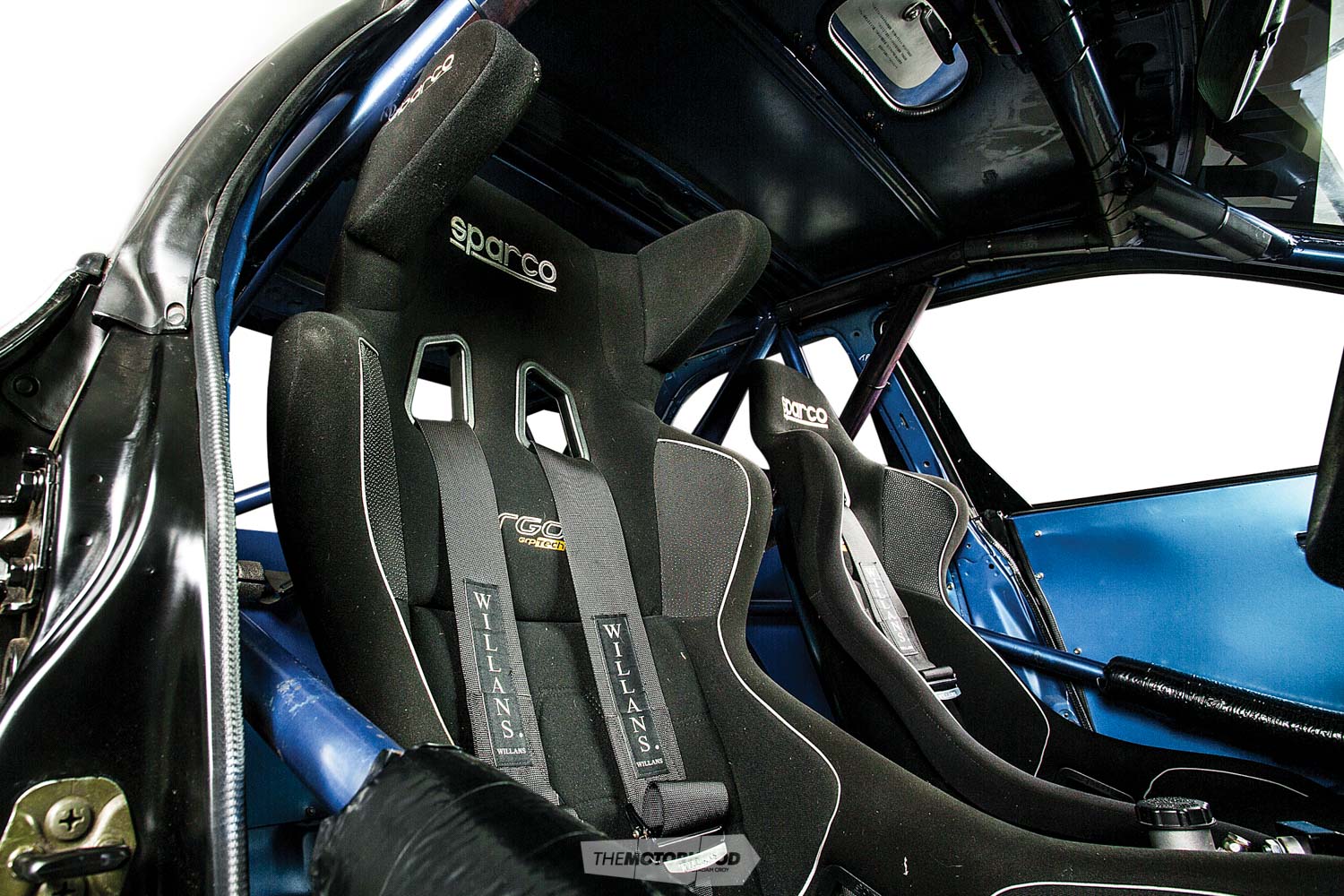
The interior houses a eight-point roll cage, Sparco race seats, and a flocked dash that has had the factory cluster removed in favour of a Race Technologies Dash2 Pro that displays all the vitals from the Link G3 ECU
This is the type of build that inspires one of two emotions — love for how wild it has become or hate for how far it has strayed from the factory example. But that’s just what Russell was after, as he told us: “I kind of wanted it to generate both feelings for people. It’s a car that represents me; it’s the the material representation of my personality. Everyone is into different things — some will have a very specific taste, while others enjoy a bit of everything. The main thing is [that] it gets people talking.”
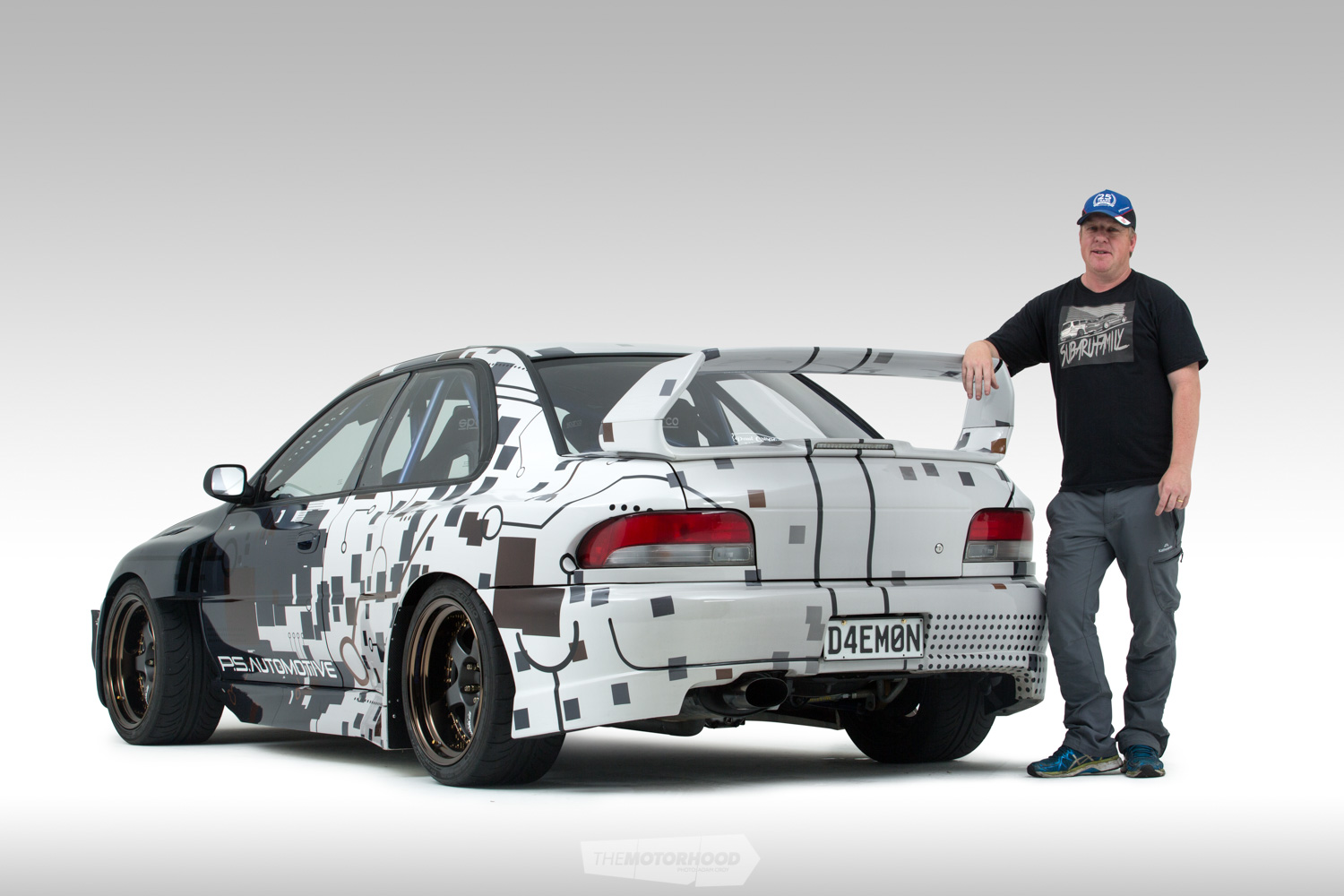
Driver/owner: Russell Clarke
Age: Offensively young
Location: Auckland
Occupation: Scientist
Build time: Seven years on and off
Length of ownership: Nine years
Thanks: My son, Caian, and my partner, Julie; PS Automotive; Miller Engineering; 0800 VapourBlast; Elite Tints; Paul, Terry, Pete, and Blair; MS Fibreglass; Harrier Signs and Machine Signage; Hero Prints; Tony from Dtech Motorsport
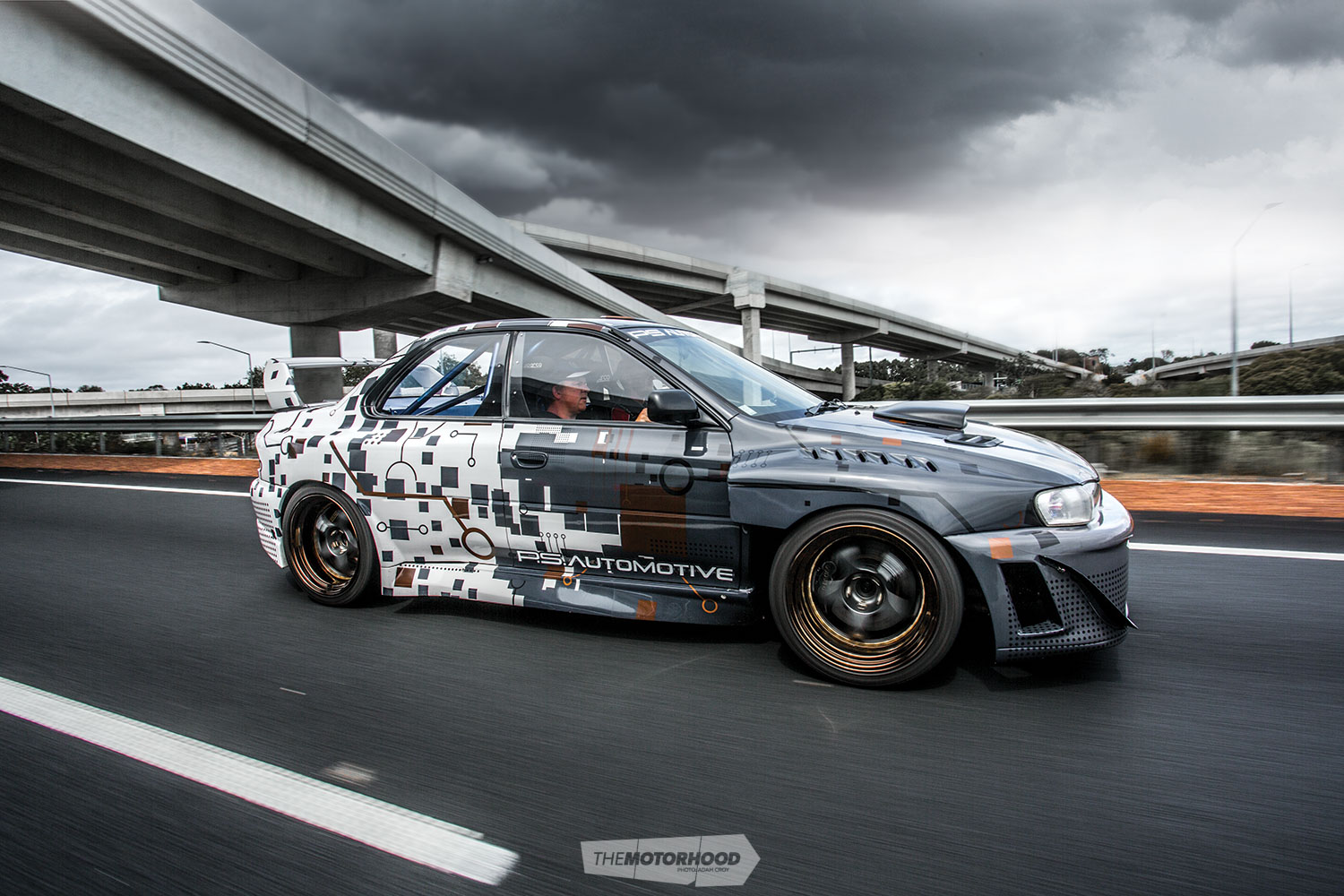
If you thought this car would be restricted to track work, you’d be wrong. A key build element was to keep it road legal, so, freshly certified and Motorsport New Zealand authority carded, it was driven to the shoot without fear of Johnny Law, then taken to a bent sprint event afterwards.
Heart
ENGINE: Subaru EJ207, 2000cc, four-cylinder
BLOCK: 2.1-litre semi-closed deck, new Subaru bearings
HEAD: Shimless BH Legacy heads, AVCS delete, ported and polished exhaust ports, ported intake ports, custom 279-degree camshafts, Brian Crower adjustable cam wheels, upgraded valve springs, 1mm oversize valves, ARP head studs
INTAKE: Custom intake pipe, Simota filter, custom front-mount intercooler piping, flipped and shaved plenum, 22-carat-gold insulation wrap
EXHAUST: PS Automotive stainless-steel three-inch, Cobb exhaust tip, single muffler, PS automotive custom equal-length manifold
TURBO: Garrett GTX30R
WASTEGATE: TiAL
BOV: Go Fast Bits
FUEL: Fiveomotorsport Black-Ops 1400cc top-feed fuel injectors, Miller Engineering custom fuel rails and brackets, Zeitronix flex-fuel ethanol sensor, ATL 54.5-litre fuel cell, Miller Engineering custom surge tank, twin Walbro primary pumps, external lift pump, TiAL fuel-pressure regulator
IGNITION: MSD ignition leads
ECU: Link G3 (running G4 firmware)
COOLING: Alloy radiator, top-mounted oil cooler
EXTRA: MAP driver-controlled centre differential (DCCD) controller; shaved and de-loomed engine bay; motorsport-spec wiring throughout; brake booster removed; Miller Engineering custom three-in-one coolant reservoir, overflow, and catch-can; Hardrace engine mounts
Driveline
GEARBOX: 2006 Subaru Spec C six-speed
CLUTCH: Cusco twin-plate
FLYWHEEL: Factory
DIFF: Factory Subaru limited-slip (3.9:1-ratio)
EXTRAS: The Driveshaft Shop carbon-fibre single-piece driveshaft, Hardrace gearbox mounts
Support
STRUTS: Tein Type Flex coilovers; (F) 15kg springs, (R) 13kg springs
BRAKES: (F) AP Racing six-pot calipers, 343mm floating MTEC J-Hook rotors, Endless race pads; (R) Subaru four-pot primary calipers, Subaru two-pot secondary calipers, PS Automotive mounting plate, 328mm rotors, Endless race pads; Tilton pedal box with hidden remote reservoirs, Wilwood compact master cylinders, OBP hydraulic handbrake
EXTRA: Whiteline adjustable arms, Whiteline front and rear sway bars, Ultra Racing under-braces, 5×114.3 PCD hub conversion, mini-tubbed front wheel arches, enlarged rear arches, welded rear doors, lightened inner body, eight-point roll cage
Shoes
WHEELS: 18×10-inch (-20p) Work Meister S1 3P
TYRES: 265/35R18 Zestino Gredge 07R (semi-slick)
Interior
SEATS: Sparco Evo, Sparco Argo, PS Automotive custom fixed mounts, Willans five-point race harnesses
STEERING WHEEL: Sparco with digital dash–control buttons
INSTRUMENTATION: Race Technologies Dash2 Pro data-logging digital dash with GPS
EXTRA: Key delete, custom missile switches for high-low boost, ignition, lights, and push-to-start; Sparco gear knob; flocked dash
Exterior
PAINT: Hero Prints–designed livery applied by Harrier Signs and Machine Signage
ENHANCEMENTS: Custom 110mm front and rear widebody guards, custom front and rear bumpers, custom canards, modified V8 supercar side skirts, Plastics 4 Performance polycarbonate thermoformed windows
Performance
POWER: 361kW
BOOST: 25psi
TORQUE: 590Nm
FUEL: E85/98 (flex-fuel)





